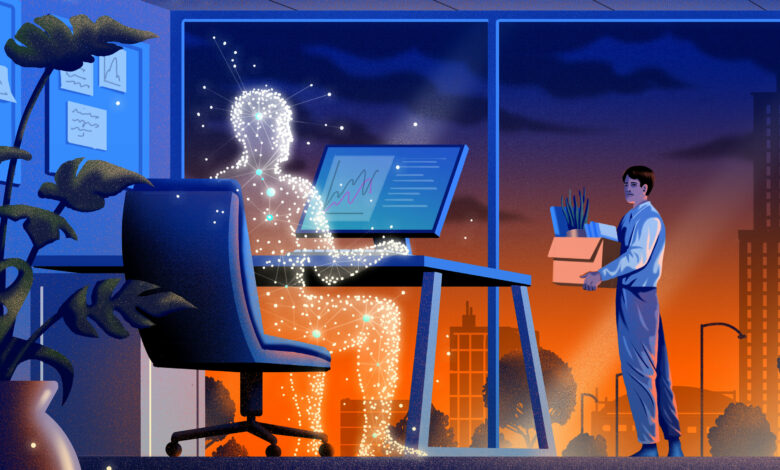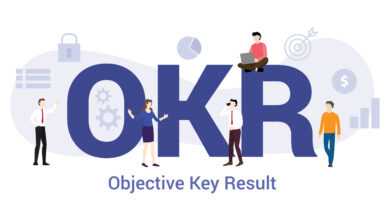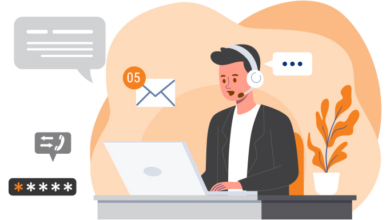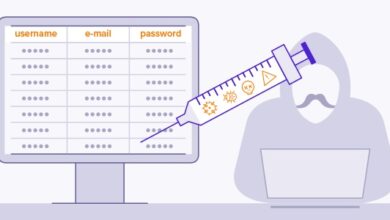How AI is Changing Modern Workplaces

Over the past decade, artificial intelligence (AI) has emerged as a transformative force reshaping various industries. One area where its impact has been particularly profound is the modern workplace.
AI has revolutionized businesses’ operations, enhancing productivity, efficiency, and decision-making processes. From streamlining routine tasks to analyzing big data for valuable insights, AI applications are making significant strides in transforming workplaces worldwide.
In this blog post, we will explore the ways in which AI is changing modern workplaces and revolutionizing the future of work.
The Rise of AI in the Workplace
Most recently, we all have witnessed how AI has evolved from a science-fiction concept to a practical, real-world solution. Its integration into the workplace has opened up a plethora of opportunities for businesses to thrive in a fiercely competitive environment. By leveraging AI’s capabilities, companies can:
- optimize processes
- extract insights from data
- offer personalized customer experiences
And that’s in a nutshell.

Ways AI is Transforming Modern Workplaces
With the growing adoption of AI, industries ranging from healthcare to finance have undergone a metamorphosis, making AI implementation an indispensable choice for modern businesses. Let’s explore the ways in which AI is transforming modern workplaces.
Automating Repetitive Tasks
One of the primary contributions of AI in the workplace is its ability to automate repetitive and time-consuming tasks. Mundane activities, such as data entry, inventory management, and customer support, can now be efficiently handled by AI-powered systems. This automation not only reduces human errors but also frees up employees to focus on more strategic and creative aspects of their jobs.
Enhancing Decision-Making
AI’s data analytics and predictive capabilities have given rise to intelligent decision-making systems. By analyzing vast volumes of data in real time, AI can provide valuable insights that aid business leaders in making well-informed and data-driven decisions. Whether it’s market trends, customer preferences, or resource allocation, AI empowers organizations to stay ahead of the curve.
Optimizing Talent Acquisition
Hiring the right talent has always been a crucial factor for businesses. AI-powered tools are revolutionizing the recruitment process by efficiently screening resumes, analyzing candidate profiles, and even conducting initial interviews. This not only saves time for HR departments but also enhances the chances of finding the best-fit candidates for specific roles.
Personalizing Customer Experiences
AI has transformed customer service by enabling personalized interactions. Natural Language Processing (NLP) and Machine Learning algorithms allow AI chatbots to engage with customers in a conversational manner, addressing their queries and concerns promptly. This personalized approach fosters customer loyalty and satisfaction, ultimately driving business growth.
Improving Workplace Safety
In hazardous industries like manufacturing and construction, AI-driven systems are enhancing workplace safety. AI-powered sensors and cameras can monitor environments in real-time, detect potential hazards, and predict equipment failures, preventing accidents and ensuring the well-being of workers.
Enabling Remote Work
The COVID-19 pandemic accelerated the adoption of remote work, and AI played a pivotal role in making it feasible. AI-enabled collaboration tools, virtual assistants, and project management platforms have facilitated seamless remote work operations, allowing employees to stay productive and connected from anywhere in the world.
AI in Employee Training and Development
AI-driven platforms can personalize learning experiences for employees based on their skills, strengths, and weaknesses. This individualized training approach fosters continuous learning, enhancing employee competencies and overall organizational performance.
AI Ethical Considerations in the Workplace
While AI offers immense potential in the workplace, its integration also raises important ethical considerations. The use of AI in decision-making processes, especially in areas like hiring and performance evaluation, can lead to bias and discrimination if not carefully monitored. Ensuring transparency, accountability, and fairness in AI algorithms is crucial to avoid perpetuating social disparities and ensuring an inclusive work environment.
The Road Ahead: Preparing for an AI-Enabled Future
Artificial intelligence has undoubtedly become a game-changer in modern workplaces, revolutionizing the way businesses operate and interact with customers. From automating routine tasks to enabling data-driven decision-making and fostering collaboration, AI is transforming the way organizations function and interact with their employees and customers.
As AI continues to advance, it is essential for organizations to prepare their workforce for an AI-enabled future. This includes investing in employee training programs that foster digital literacy and equip employees with the necessary skills to work alongside AI systems effectively.
However, as AI’s presence continues to grow, it is imperative for organizations to strike a balance between AI-driven automation and human-centric ethics. By incorporating responsible AI practices and investing in employee upskilling, businesses can harness the full potential of AI to create a future of work that is not only efficient and productive but also inclusive and equitable.
As we move forward into the age of AI-driven workplaces, let us embrace the possibilities it offers while remaining vigilant in addressing potential challenges, thus paving the way for a future where AI and human intelligence work hand in hand to create a better world of work.



